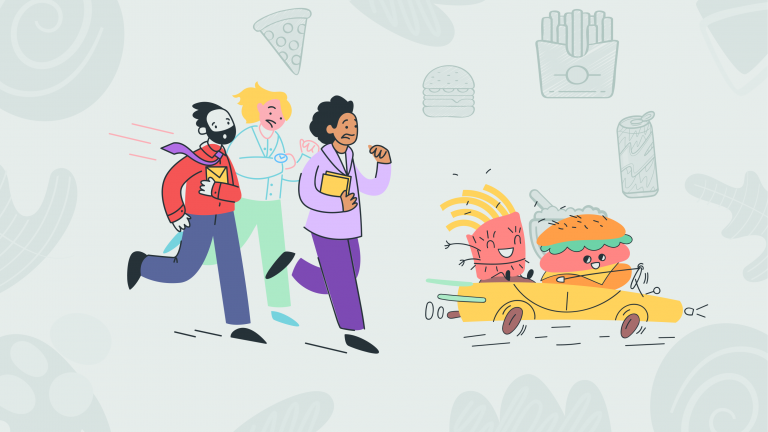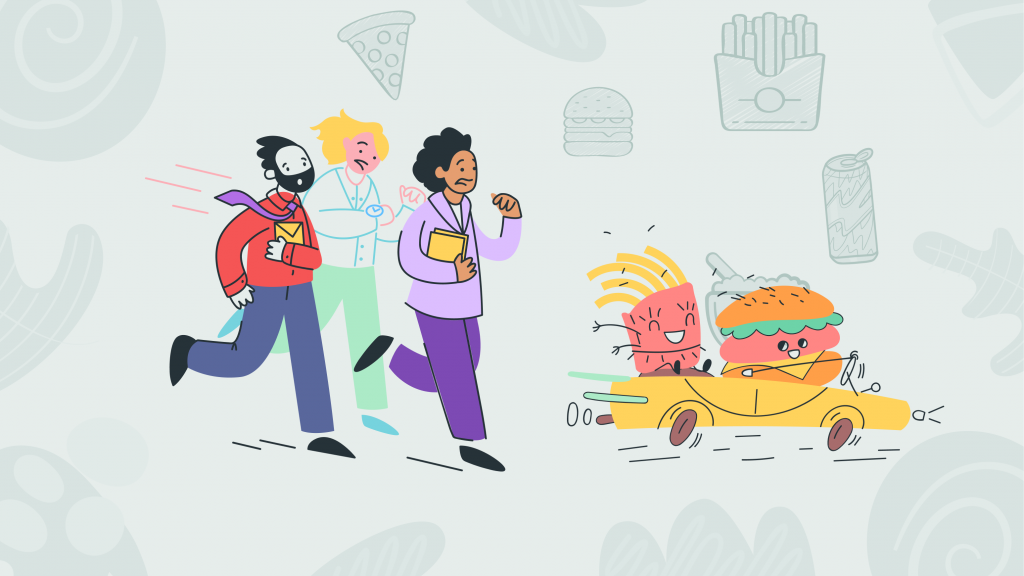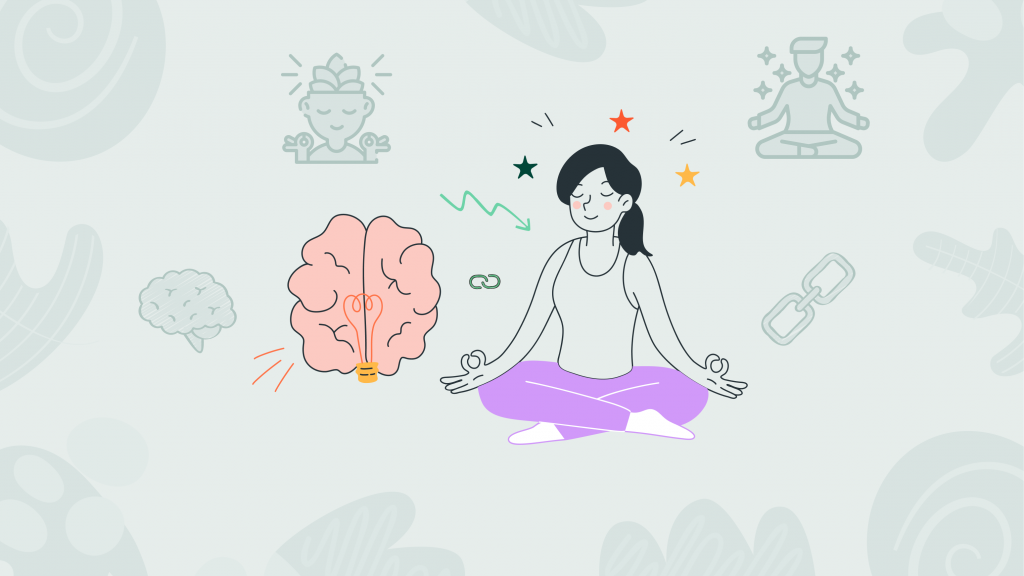The Stress Snack Cycle
Ah, the Stress Snack Cycle, our all-too-familiar frenemy!
It’s like we’re on this never-ending merry-go-round in today’s non-stop world, where stress eating plays a starring role.
Think about it: those comfort foods, oh-so-tempting, become our go-to hideaway from the daily grind’s madness. But hey, it’s not just about rumbling tummies; it’s a complex dance of worry, fatigue, and that almost desperate hunt for a little peace in the pantry.
Imagine the kitchen as this popular hangout spot, not for chit-chat, but for those seeking quick comfort in the embrace of cookies, chips, or whatever your comfort vice may be. It’s a scene played out in homes everywhere, cutting across borders and backgrounds, highlighting how we’re all in this tango of trying to find some semblance of balance and feel-good vibes in our hectic lives.
The Brain’s Role in Stress Eating
When stress kicks in, it’s like flipping a switch in your brain, setting off a cascade of neurochemical reactions. Cortisol, the stress hormone, floods your system, heightening your appetite, particularly for foods high in sugar and fat.
These foods trigger the release of dopamine, the ‘feel-good’ neurotransmitter, providing a temporary mood lift. This neurological feedback loop strengthens the association between comfort eating and stress relief, making it a challenging cycle to break.
It’s not just a lack of willpower; it’s your brain’s wired response to stress, seeking immediate gratification to counterbalance emotional turmoil.
Peeling back another layer, this intricate brain-food saga reveals more players in the stress eating drama. Alongside cortisol and dopamine, there’s also ghrelin, often dubbed the ‘hunger hormone,’ which sees an uptick during stress, nudging your hunger levels up.
And let’s not forget about your brain’s reward centers, lighting up like a Christmas tree at the mere thought of indulging in your favorite comfort food, reinforcing the craving cycle.
This whole process is like your brain putting on a Broadway show titled “Eat Now, Feel Better,” with cortisol and ghrelin as the lead actors, and dopamine running the applause sign. The plot thickens as these neurochemicals choreograph a dance that makes resisting that chocolate bar or bag of chips not just a battle of willpower, but a neurochemical tug-of-war.
Understanding this can change your approach to stress eating, shifting from a battle of self-control to a strategic plan for managing your brain’s stress-induced cravings. It’s about rewiring the show in your brain to favor long-term health over short-term emotional fixes.
Subscribe to newsletter
Get your Gut Health Starter Guide right now.
Elevate your Tuesdays with practical, science-backed wisdom propelling you forward on your gut health journey.

Pathways to Mindful Munching
- Emotional Awareness: Start by recognizing emotional hunger versus physical hunger. Emotional eating often comes on suddenly and craves specific comfort foods, while physical hunger builds gradually and is open to various food options.
- Stress Management Techniques: Incorporate activities like yoga, meditation, or exercise into your routine to manage stress levels and reduce the likelihood of stress eating.
- Healthy Alternatives: Keep nutritious snacks like fruits, nuts, or whole-grain crackers within reach for when the urge to munch strikes.
- Mindful Eating Practices: Focus on eating slowly and savoring each bite, which can help you recognize fullness cues and reduce overeating.
From Stress to Serenity
Meet Emma, a graphic designer whose deadlines were as tight as her stress levels were high. Emma found solace in late-night ice cream and weekend pizza binges, mistaking her stress for hunger.
“It was my way of coping,” Emma recalls, “until I noticed how sluggish and unfulfilled I felt.” The turning point came when Emma attended a workshop on mindfulness and stress management.
She learned to distinguish between emotional and physical hunger, swapping her ice cream scoops for evening walks and her pizza slices for cooking healthy meals. “It was about finding what truly nourished me, beyond just food,” she says. Over time, Emma’s new habits led to not only a healthier diet but also improved mental clarity and energy levels.


















